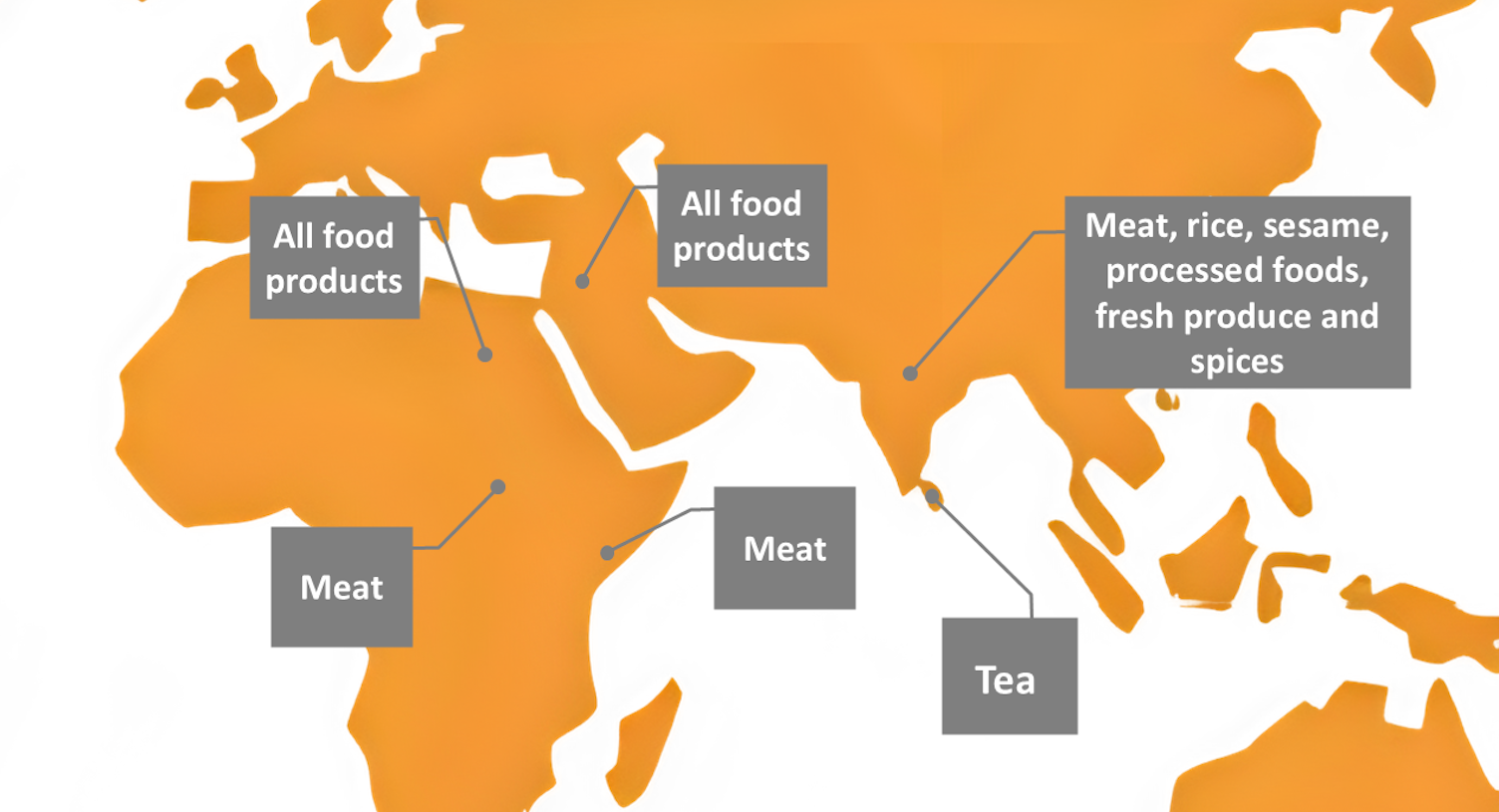As food imports continue to rise in Saudi Arabia, ensuring the safety and quality of these products remains a top priority for the Saudi Food and Drug Authority (SFDA). In partnership with the SFDA, we play a vital role in ensuring that imported food fully complies with national technical requirements, supporting both public health and the Kingdom’s food security objectives.
Importing food into Saudi Arabia involves several critical steps, and we are committed to ensuring a smooth, compliant and efficient process from start to finish. We work closely with clients to ensure accurate registration of both products and facilities through the SFDA’s GHAD platform.
We also ensure that all required certificates and documentation are in place, depending on the specific product category. These may include halal and health certificates, commercial invoices, packing lists and, where applicable, a certificate of conformity (CoC). All shipments are processed through the FASEH platform, where complete documentation, particularly the CoC, plays a vital role in enabling swift and seamless customs clearance.
A CoC issued by us serves as proof that a food consignment meets Saudi Arabia’s regulatory and safety requirements. While not required for all countries, the CoC is mandatory for shipments from specific countries:
- Egypt and Jordan – food and beverages
- Sri Lanka – tea
- Somalia and Sudan – meat
- India – a wide range of products, including meat, rice, sesame, processed foods, fresh produce and spices
SGS certificates must be obtained before shipment.

To streamline operations and reduce processing delays, SFDA has transitioned to two key digital platforms: GHAD and FASEH. GHAD has replaced the FRCS platform and handles registration, licensing and approvals for products and facilities, while FASEH now manages documentation submission and shipment clearance.
Food product registrations are now conducted exclusively through the GHAD platform, while shipment clearance is managed through FASEH. This has streamlined the process compared to the previous FRCS system.
Effective August 24, 2025, all CoCs will be issued exclusively via the FASEH platform.

At SGS, we ensure a seamless transition by leveraging our in-depth knowledge of SFDA requirements and expertise in digital systems, managing the entire CoC process with precision. This approach minimizes risk, eliminates uncertainty and ensures your shipments move smoothly and compliantly through Saudi borders.
Partnering with us provides a key advantage in navigating the complexities of food export compliance to Saudi Arabia. By combining regulatory expertise with the efficient use of digital platforms, we help our clients streamline the import process, reduce delays and ensure their products consistently meet the high safety and quality standards expected in the Saudi market.
Learn more about Saudi Arabia – SFDA Certificate of Conformity.
This article can also be found in our PCA Newsletter (Q3/2025) – which keeps you up to date with developments in technical barriers to trade and product conformity assessment.
Read more PCA articles (Q3/2025)
- Importing into Kenya? New Rules for Product Inspections and Compliance
- UNBS Launches New e-Portal to Accelerate Clearance of Imported Goods
- Unlock East African Markets with EAC-Ready Certification
- New PCA Agreement with Ivory Coast Reinforces Commitment to Trade Compliance and Product Integrity
You can read more articles in our previous editions in the PCA Newsletter Library.
© SGS Société Générale de Surveillance SA.
16th Floor, Block A, No.73 Fucheng Road, Century Yuhui Mansion,
Beijing, Haidian District, China





